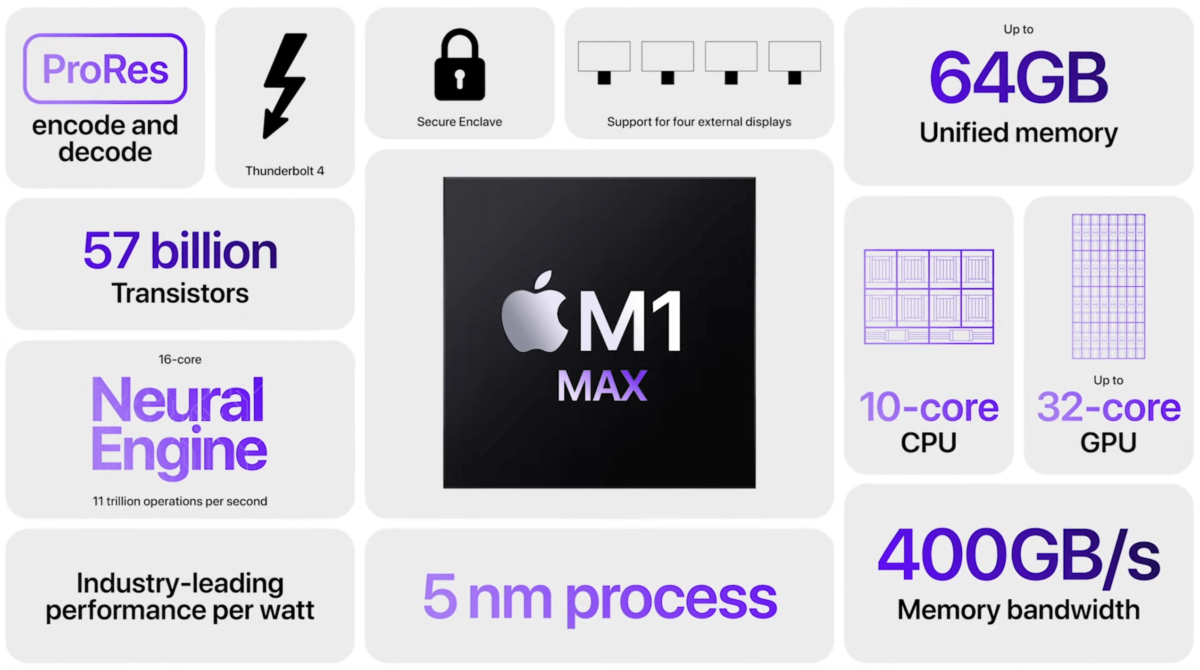New benchmarks reveal that the new M1 Max MacBook Pro exports ProRes video almost two times faster than a 2019 Mac Pro with Afterburner, and three times faster than the 2019 Mac Pro without an Afterburner card.
These benchmarks have been posted in a new article by Macworld. While this would not come as a surprise to people who have been following the impressive M1 Max benchmarks posted before, it sheds light on the ProRes video codec performance on offer by Apple Silicon.

M1 Max is twice as fast as a 2019 Mac Pro with an Afterburner card in this benchmark
The 2019 Mac Pro is powered by an Intel Xeon W CPU, which can be configured with up to 28-cores, 1.5TB memory, and up to two AMD W6800X Duo GPUs, which makes it a complete powerhouse workstation for professional use cases. The 2019 Mac Pro can also be configured with a $2,000 Afterburner card, which accelerators ProRes and ProRes RAW workflows in supported apps, and enables system playback of up to 6 streams of 8K ProRes RAW or up to 23 streams of 4K ProRes RAW.
In comparison, the M1 Max chip in MacBook Pro features 10 CPU cores, and up to 32-core GPU. The chip also features a dedicated media engine for decode, and two for encode, alongside two ProRes accelerators.
Macworld’s new article puts the ProRes video export performance to test to find that M1 Max MacBook Pro is twice as fast as a 2019 Mac Pro with Afterburner. Compared to a 2019 Mac Pro without an Afterburner card, the M1 Max MacBook Pro is thrice as fast.
- M1 Max MacBook Pro: 76 seconds
- 2019 Mac Pro with Afterburner: 153
- 2019 Mac Pro: 233
The benchmark involved the export of a five-minute 6K ProRes Raw video clip to ProRes 422 HQ.
Of course, this benchmark is specific for ProRes workflow, but it shows what is possible and how much time can be saved when using an M1 Max MacBook Pro, which costs a fraction of the cost of a fully equipped Mac Pro.
Read more:
- 16-inch M1 Max MacBook Pro is a power house, says professional photographer Austin Mann
- Apple’s M1 Max outperforms AMD Radeon Pro W6900X in Affinity GPU benchmark
- M1 Pro and M1 Max analysis reveals the new chips vastly outperform competitors
- M1 Max vs Nvidia RTX 3080 comparison shows Apple lags in gaming benchmarks